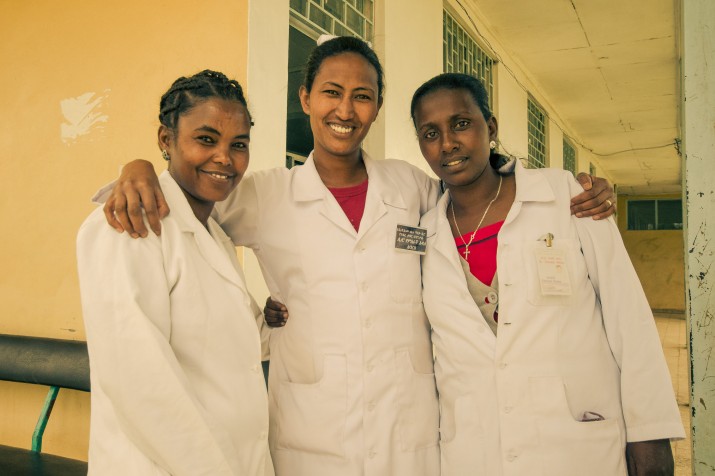The SIAPS impact: Sustainable Pharmaceutical Systems Strengthening
The SIAPS impact: Sustainable Pharmaceutical Systems Strengthening

From 2011 to 2018, the Systems for Improved Access to Pharmaceuticals and Services (SIAPS) program worked to help make sure that people have timely access to safe, affordable medicines and to well-trained pharmacy workers who can provide quality services to improve their health. Funded by USAID and implemented by MSH, SIAPS worked in 46 countries to strengthen pharmaceutical systems by addressing five interrelated functions with a focus on medical products—governance, human resources, information, financing, and service delivery.
As the program closes, here are a few highlights of its work:
Policies, laws, and governance
To make sure that medicines are safe, countries need to have policies and supportive legislation in place and be able to enforce it. With SIAPS’ help, a number of countries developed or revised their national medicines policies and developed dozens of laws and regulations. Eleven countries improved product registration systems to help move quality medicines to market faster.
Human resources
Delivering the right medicines and making sure they’re used appropriately requires skilled health care workers, managers, and leaders who have up-to-date knowledge and skills. SIAPS built institutional capacity to help pharmaceutical leadership in many countries develop terms of reference and organograms. The program also supported training of tens of thousands of people in areas like ensuring appropriate use, preventing antimicrobial resistance, effective procurement and information management.
Information for decision making
Data-based decision making is critical to supporting countries’ disease-specific programs, such as TB, malaria, HIV, and RMNCH, and their essential medicines programs. 43 countries use six electronic pharmaceutical management information systems SIAPS developed to help them make more evidence-based, accurate, and timely decisions for patient care and pharmaceutical management. The program also worked to present data easy-to-access and understandable ways, including online portals, dashboards, and other platforms.
Financing
Medicines contribute significantly to the overall cost of health service delivery and account for a sizeable proportion of out-of-pocket payments. Efficient pharmaceutical management is key to cost containment and reaching universal health care goals, as are innovative, country-specific strategies to maximize resources. SIAPS helped countries save more than $120 million through revised formularies and improved procurement, quantification, and stock redistribution.
Pharmaceutical products and related services
Ensuring that medicines are available, affordable, safe and appropriately used means both addressing supply barriers and examining the quality of prescribing and adherence to treatment guidelines. To help ensure this and improve patient compliance and desired health outcomes, the program implemented pharmacovigilance activities in a dozen nations, created and revitalized more than 500 Drug and Therapeutics Committees, and helped countries develop national strategies to fight antimicrobial resistance.
To help countries consistently measure how well systems strengthening projects work, set priorities, and guide country and donor investments, SIAPS and its partners proposed a definition of pharmaceutical systems and pharmaceutical systems strengthening and developed a new framework, PSS Insight, for countries to measure the progress of PSS. The PSS Insight tool can help highlight system strengths and weaknesses, identify areas for scrutiny and diagnosis, and help national governments and donors allocate funding and support in areas that may benefit from further strengthening.